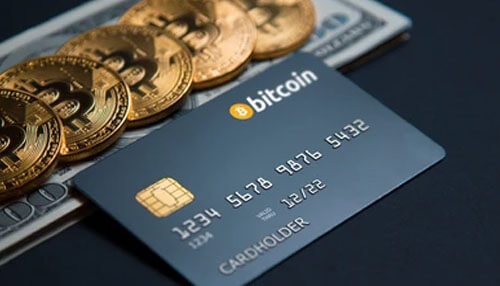There’s no doubt cryptocurrency is here to stay. Businesses of all shapes and sizes now see it as legitimate enough—in general—to accept this form of currency as payment for goods and services. In a recent survey, 36% of small and medium-sized enterprises (SMEs) in the US said they accept cryptocurrency as payment. And that percentage includes plenty of cryptocurrency for restaurants.
As our financial ecosystem evolves, deciding to accept cryptocurrency is worth considering. But the real question is—is it the right choice for your restaurant? This article will explore how to determine if accepting cryptocurrency as a form of payment is right for you as a restaurant owner.
Benefits Versus Risks
As with any business decision, it’s important to consider if the benefits outweigh the risks. This cost-benefit analysis is especially important if you’re looking to trade, hold, and invest in cryptocurrencies.
Take the time to consider if accepting cryptocurrency as a form of payment is the best decision for your business. We’ve outlined some of the main benefits and risks to business owners below, but it’s always worth seeking independent financial advice before choosing.
Benefits:
- Fast payments
- Low transaction fees
- No card chargebacks
- Appealing to a younger clientele
- Allows for monetary diversification
Risks:
- You may be at higher risk of hacking attacks or cyber fraud
- Cryptocurrency exchanges are less well-regulated than the traditional banking system
- All transactions are public, which can be a security concern
It’s also important to consider ensuring your business insurance covers you for cyber fraud or financial loss and double-checking that your data security systems are as robust as possible.
Embedding Cryptocurrency Into Your Restaurant Business
Let’s say you’ve decided to go ahead and use cryptocurrency within your restaurant business. Here are some ways to integrate this form of payment into your business practices.
Restaurant Ordering Systems
While restaurant patrons are becoming more comfortable with dining in post-COVID, it’s still important to remember that many people prefer to order takeout and eat their meals in their own homes. Opening up additional payment options on your ordering system means you can offer a seamless customer experience and turn one-time diners into repeat customers.
With research from Piplsay showing that 49% of millennials (aged 25-40) own cryptocurrency, this form of payment will appeal to a wide section of your target market.
If you’ve decided to use your own delivery app rather than one run by a third party, you have the flexibility to create a bespoke experience for your patrons. And that can include the ability to make payments with cryptocurrency. You can either accept payment in specific cryptocurrencies like Bitcoin or Ethereum or allow customers to make payments through an app that converts any crypto into your preferred currency.
Crypto Asset Management
Once you’ve decided to start accepting cryptocurrency payments, the first thing you’ll need to do is put in place the systems and tools you need to manage these new assets. Managed properly, your cryptocurrency investments have the potential to offer returns that can either be funneled back into your business or withdrawn as a dividend.
Choose the right method of crypto asset management to help you monitor your portfolio, in addition to helping you to know whether you should be diversifying your assets when to buy or sell investments, and how to optimize your returns.
Many crypto asset management tools allow you to view all of your wallets for separate currencies in one dashboard, offering a broad overview of how your portfolio is looking at any given point. Choose a tool with analytical features if you’re keen to gain additional insights into the performance of your investments.
Scaling Your Accounts Payable Tech Stack
When you diversify the types of payments you accept at your restaurant, it’s also important to ensure your accounts payable (AP) tech stack is keeping pace. You’ll need to consider how to scale your AP tech stack to include the right tools to help you monitor your cash flow and payables across various currencies.
As more restaurant suppliers also start to accept payments in cryptocurrencies, your investments may remain within the digital realm, never being converted into more traditional currencies or regular banking transactions. Choosing a scalable AP tech stack will help you keep track of all your payments, helping to provide the detailed overview you’ll need to help grow your business. In addition, knowing what percentage of your incoming and outgoing payments are made in both regular currencies and cryptocurrencies will help inform your business decisions over time.
The Evolution of the Restaurant Industry
As the general population becomes more and more comfortable with cryptocurrencies, their widespread use is only likely to increase. Research suggests that the next generation of restaurant patrons may be far more likely to use cryptocurrency wallets than traditional credit cards or bank accounts.
Staying ahead of the curve by offering cryptocurrency payment options for dine-in and takeaway will keep your business relevant and accessible to as many customers as possible.




